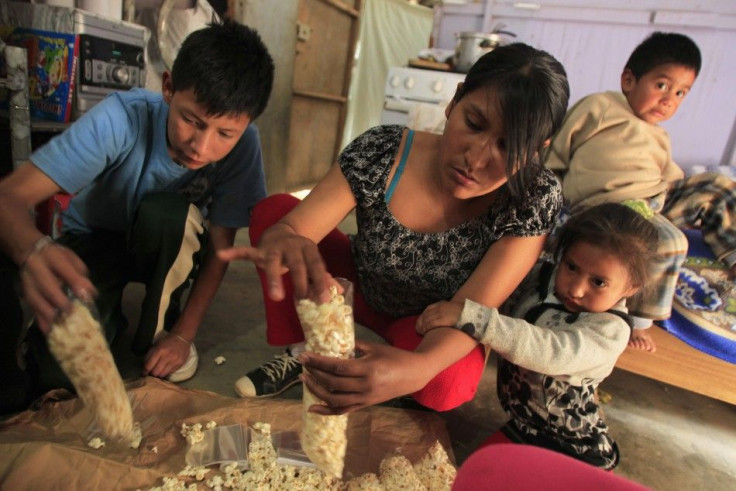Poverty Rates in Latin America Plunging

Latin America has engineered a stunning reduction in poverty and social inequality over the past two decades, according to a report by the United Nations Economic Commission for Latin America and the Caribbean (ECLAC).
Between 1990 and 2010, the rate of poverty rate on the continent plunged from 48.4 percent to 31.4 percent; while the rate of indigence (extreme poverty) dropped from 22.6 percent to 12.3 percent.
Moreover, the executive secretary of ECLAC, Alicia Bárcena, forecasts that the poverty level in Latin America will further decline to 30.4 percent in 2011, although the indigence rate will edge up slightly to 12.8 percent due to rising food prices.
By the end of 2011, ECLAC estimates, 174 million people in South America will be living in poverty, while 73 million will be in a state of extreme poverty. At the end of 2010, the corresponding figures were 177 million and 70 million, respectively.
ECLAC explained that the principal reasons for the falling poverty levels were “rising labor income” and “increasing public transfers to the most vulnerable sectors,” as well as a steady decline in fertility rates.
ECLAC highlighted particularly pronounced drops in poverty rates in Peru, Ecuador, Argentina, Uruguay and Colombia.
Poverty and inequality continue to decline in the region, which is good news, particularly in the midst of an international economic crisis,” Barcena said in a statement.
“However, this progress is threatened by the yawning gaps in the productive structure in the region and by the labor markets which generate employment in low-productivity sectors, without social protection.”
ECLAC’s survey also pointed out that social expenditure in Latin America has blossomed over the past two decades, explaining part of the decrease in regional poverty.
In Argentina, Brazil, Chile, Costa Rica, Cuba, Trinidad and Tobago and Uruguay, social spending per capital amounts to in excess of $1,000, with much of such expenditures being made on social security and assistance.
“In response to the global economic crisis, the countries opted to temporarily expand public spending rather than to shrink it, which was the action traditionally taken,” ECLAC noted.
“Although, the emphasis is not always placed on society, expansion still prevented the rise in unemployment and social vulnerability. To jointly improve productive convergence, labor institutionality and universal social protection in Latin America, steps towards fiscal pacts and social dialogue must be taken.”
However, the ECLAC report warned of risks to economic growth in the Caribbean nations, where youths are battling high rates of HIV infection and unemployment. HIV rates in this area
© Copyright IBTimes 2024. All rights reserved.





















